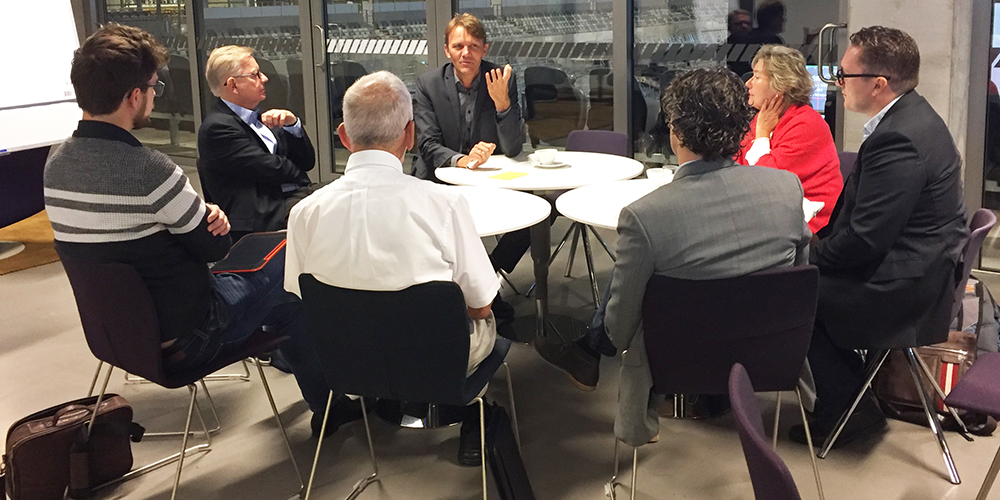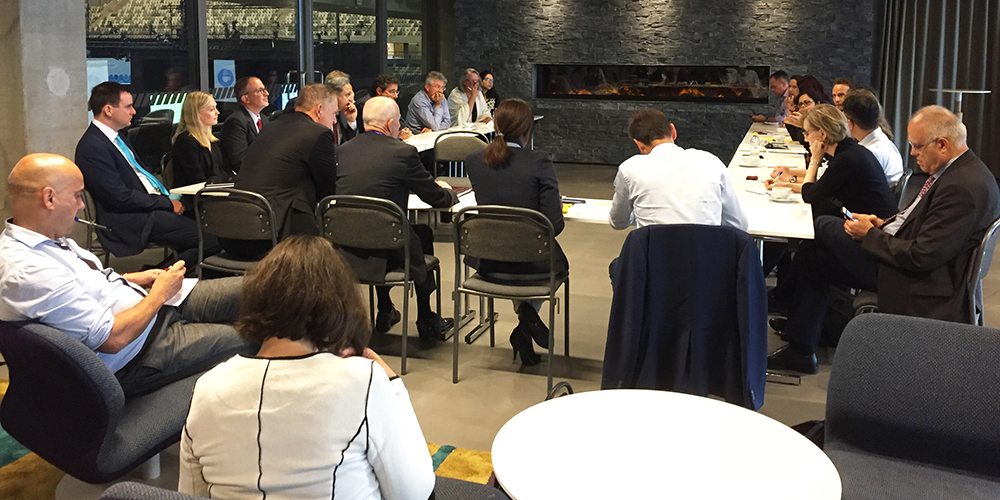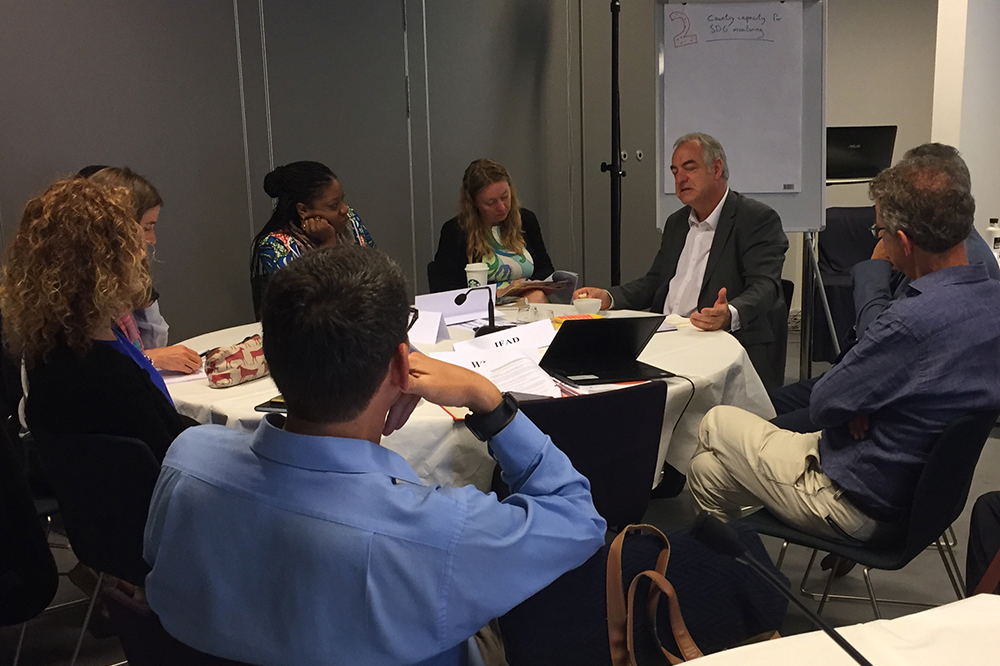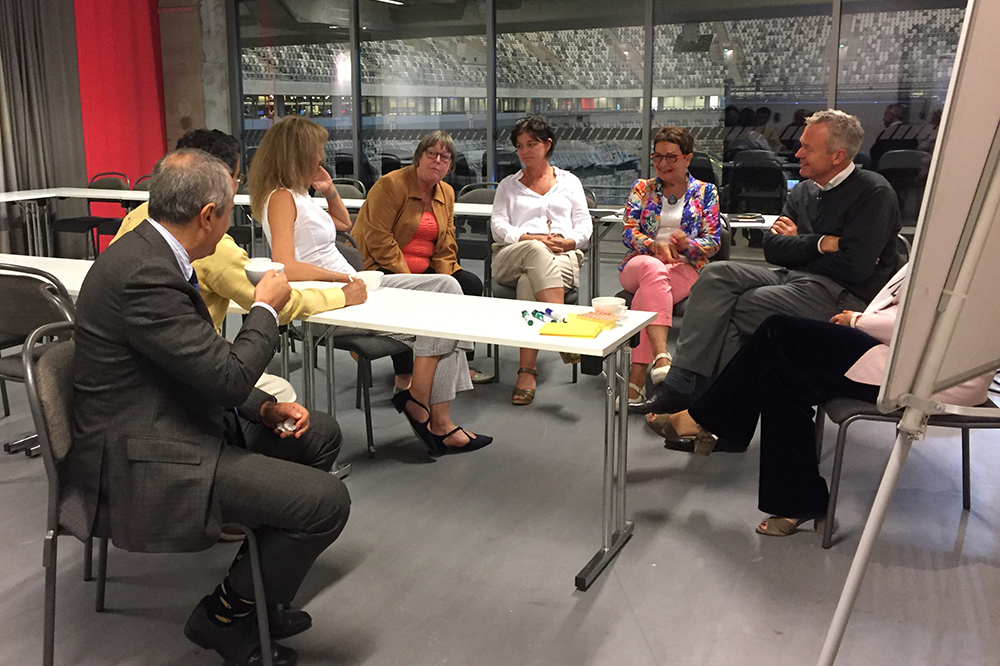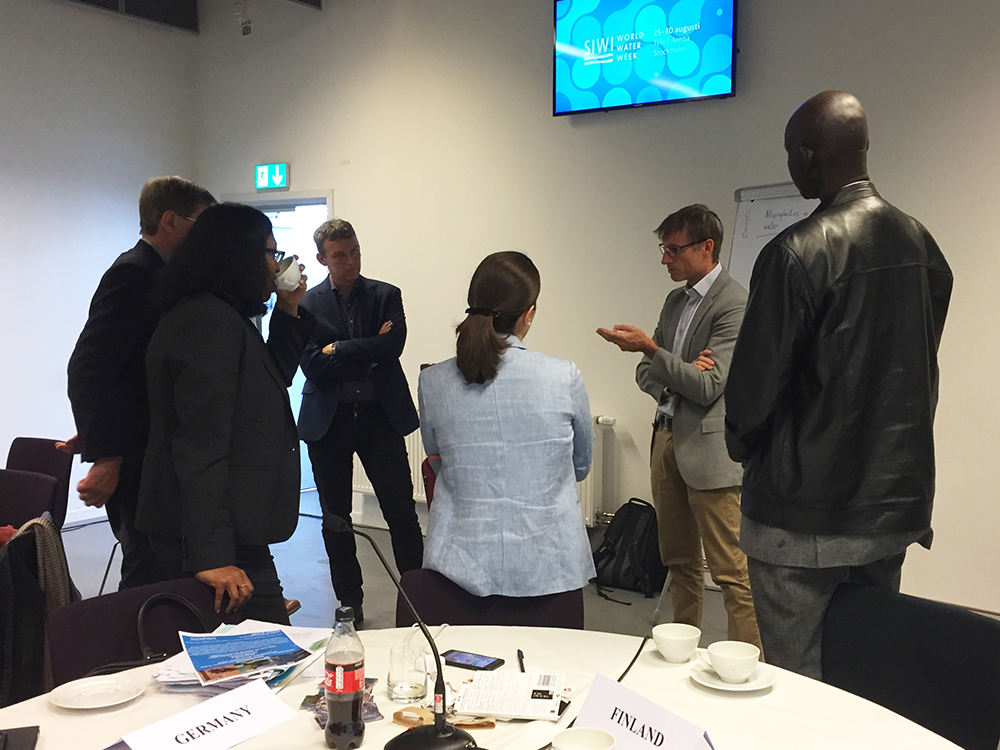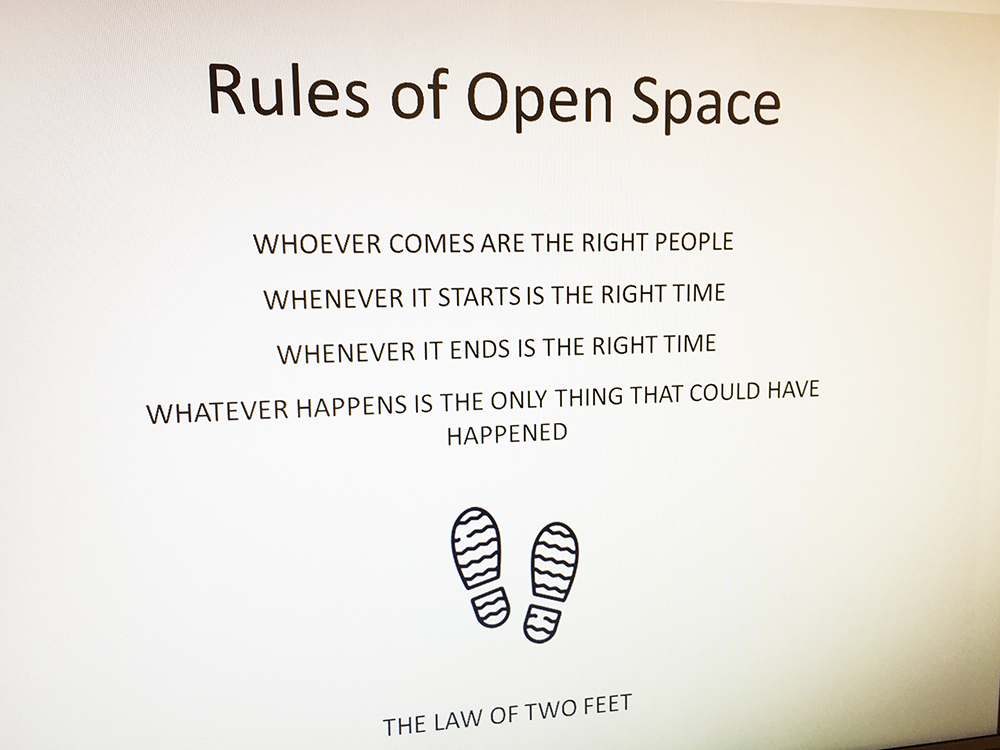About
The 31st UN-Water Meeting discussed progress on and next steps for joint initiatives that UN-Water Members and Partners have undertaken to ensure that the UN is “delivering as one” to address global water challenges. Many of the initiatives discussed during this meeting, which took place immediately prior to World Water Week 2019, will contribute to implementation of the 2030 Agenda for Sustainable Development, with particular emphasis on Sustainable Development Goal (SDG) 6 (clean water and sanitation).
Final report
Summary report 23–24 August 2019
All coverage
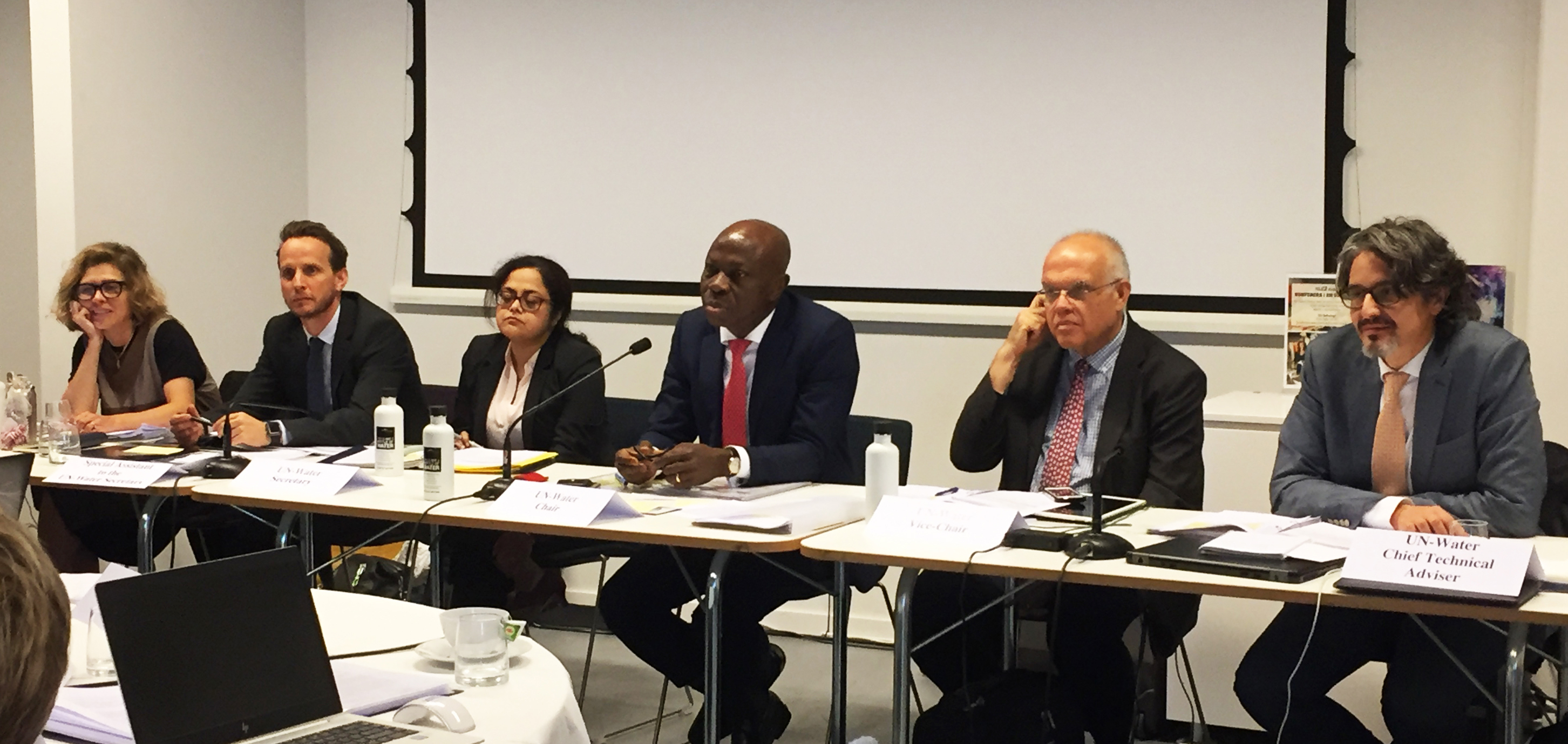
The 31st UN-Water Meeting discussed progress on and next steps for joint initiatives that UN-Water Members and Partners have undertaken to ensure that the UN is “delivering as one” to address global water challenges.Many of the initiatives discussed during this meeting, which took place immediately prior to World Water Week 2019, will contribute to the implementation of the 2030 Agenda on Sustainable Development, with particular emphasis on Sustainable Development Goal (SDG) 6 (clean water and sanitation). These include the Integrated Monitoring Initiative (IMI) for SDG 6, which is supported by the custodians of the SDG 6 indicators. Several speakers at the UN-Water meeting said this initiative has resulted in a monitoring approach for SDG 6 that is advanced compared to other SDGs. Participants received a preview of one IMI project, the SDG Data Portal, which will be officially launched on 27 August 2019, during World Water Week.Another initiative discussed at the meeting stemmed from a recommendation by the High Level Panel on Water that was endorsed at the 29th UN-Water meeting, in August 2018. During discussions on the agenda item on the process leading to the 2021 and 2023 UN high level meetings mandated in the midterm review resolution on the International Decade for Action, “Water for Sustainable Development”, 2018–2028, participants highlighted the value that these two meetings could have for water policy if their preparations and objectives are properly followed-up on. Additional agenda items addressed global events that are expected to shape water policy opportunities in the coming decade, including the UN reform process and increased attention to the water, peace and security nexus. Delegates discussed what UN-Water could offer for country-level engagement in the context of UN reform, which has changed the way that the UN works with countries. A panel discussion considered how to situate water in climate change processes, and participants conducted an initial discussion on ideas to include in a roadmap for the UN-Water Strategy to 2030. UN-Water Meetings bring Members and Partners together twice a year to carry out the mandate of informing policies, monitoring and reporting, and inspiring action on water and sanitation issues. Participants agreed that the 32nd UN-Water meeting would convene in January 2020 in Rome, Italy.
IISD Reporting Services, through its ENB+ meeting coverage, provided a summary report from the 31st UN-Water Meeting, which is now available in HTML and PDF.
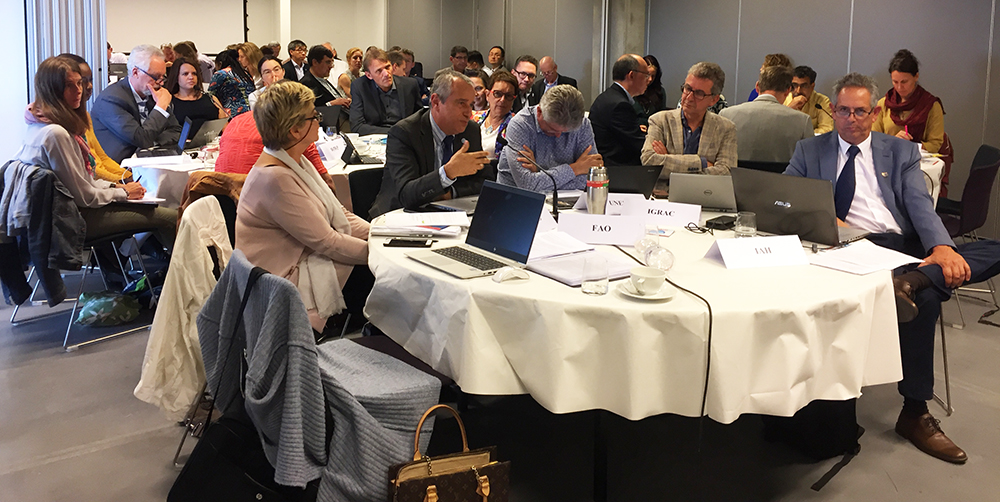
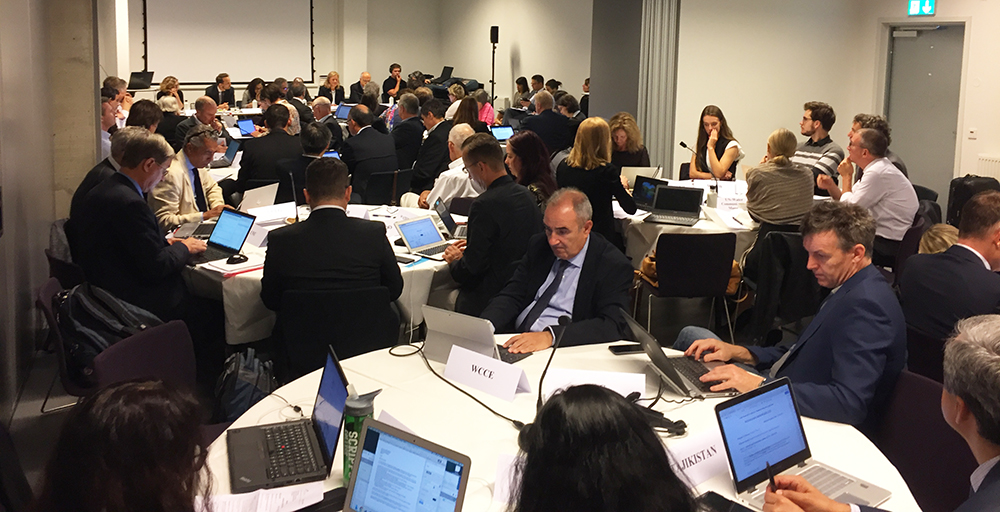
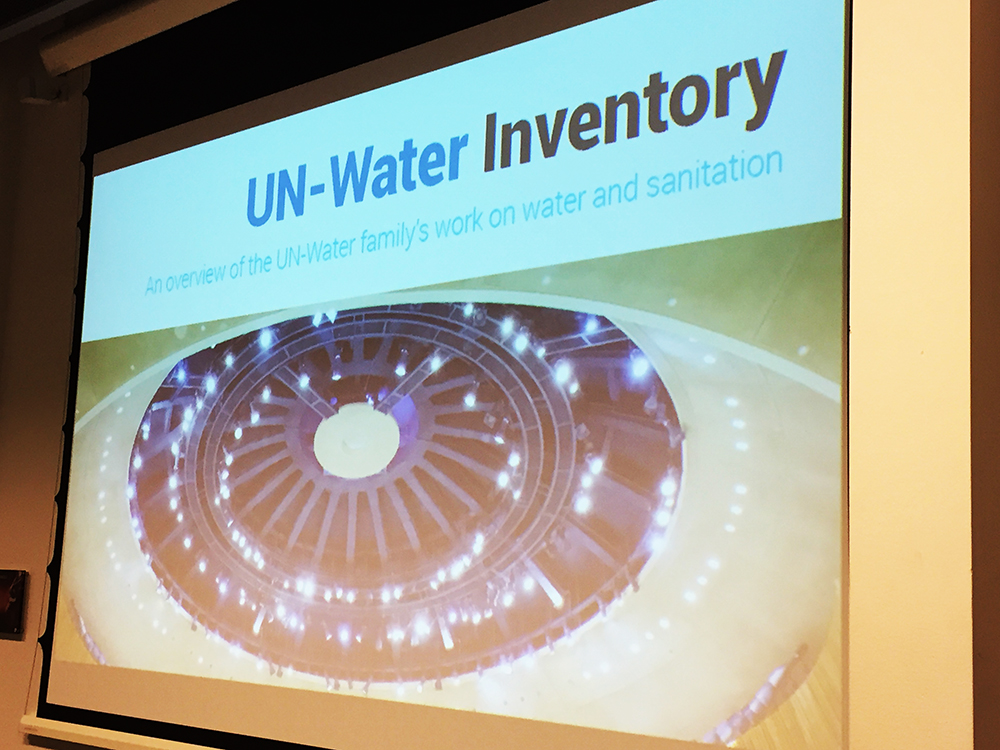
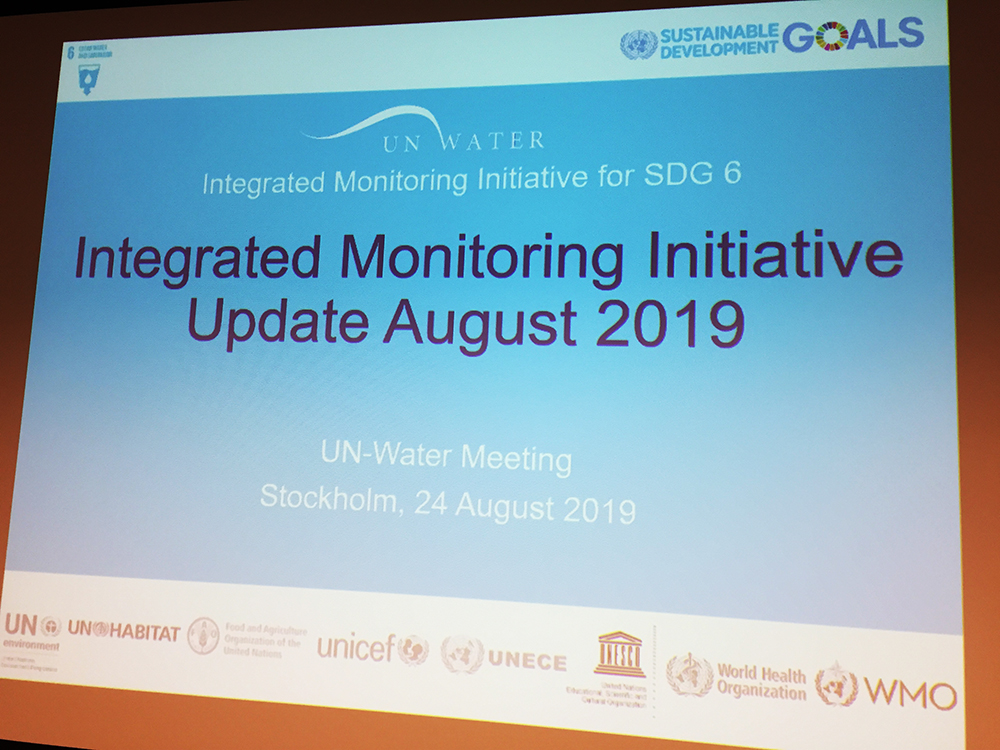
Open space discussions
